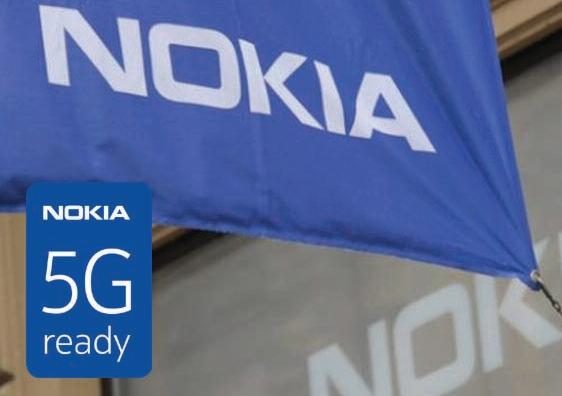
2 minute read
NokIA, kyNdryl exTeNd PArTNersHIP for PrIvATe 5G fACTory NeTworks
profit report
NOKIA(NOKIA.HE) and Kyndryl (KD.N) have extended their partnership for three years after clocking up more than 100 customers for automating factories using 5G wireless networks, following their first tie-up a year earlier.
Advertisement
Big technology firms have been partnering with telecom gear makers such as Nokia to sell private 5G networks to customers, mostly in the manufacturing business, but only a few companies have been able to get any traction in the business that is expected to grow by billions of dollars every year.
“We grew the business significantly last year with the number of customers and number of networks,” Chris Johnson, head of Nokia’s enterprise business, told Reuters.
The companies said some customers were now coming back to put private networks into more of their factories after the initial one.
In Dow Chemical’s petrochemical processing plant in Texas, the private wireless network increased worker safety, enabled remote audio and video collaboration, personnel track- ing, and vehicle telematics, the companies said.
Dow is now planning to expand the same coverage to dozens of its factories, said Paul Savill, Kyndryl’s global prac-
Beijing to support key firms in building ChatGPT-like AI models
tice leader.
“Our pipeline has been growing fundamentally faster than it has been in the last 12 months,” he said. “We now have over 100 customers that we’re working with in the private wireless space … in around 24 different countries.”
After getting spun off from IBM (IBM.N) in 2021, Kyndryl has focused on building its wireless network business and has signed several agreements with cloud providers.
The size of the global private 5G network market is expected to reach $41.02 billion by 2030 from 1.38 billion in 2021, according to a study by Grand View Research.
The companies have also developed automated industrial drones that can monitor a site with different kinds of sensors such as identifying chemicals and video recognition as part of surveillance.
While drones have not yet been deployed commercially yet, customers are showing interest in rugged, industrialized non-stop automated drone surveillance, Johnson said.
China’s capital Beijing will support leading enterprises in building large artificial intelligence (AI) models that can challenge ChatGPT, the city’s economy and information technology bureau said on Monday.
The city will support key firms to invest in building an open source framework and accelerate the supply of basic data, it said in a statement. The bureau also said that 1,048 core AI companies, or 29% of the country’s total, were located in Beijing as of October last year, and that it would look into ways to cultivate talent and conduct research in areas such as ethical governance. Microsoft-backed OpenAI’s hit chatbot ChatGPT has become the fastestgrowing consumer application in history and is rapidly raising awareness in China about how advanced U.S. AI is. While residents in the country are unable to create OpenAI accounts to access the artificial intelligence-powered (AI) chatbot, firms are rushing to integrate the technology into their products and Chinese tech giants such as Baidu (9888.HK) and Alibaba Group (9988.HK) are gearing up to launch rival services. Chinese regulators have not commented on ChatGPT so far, though state media has warned about stock market risks amid a frenzy over local ChatGPT-concept stocks.



